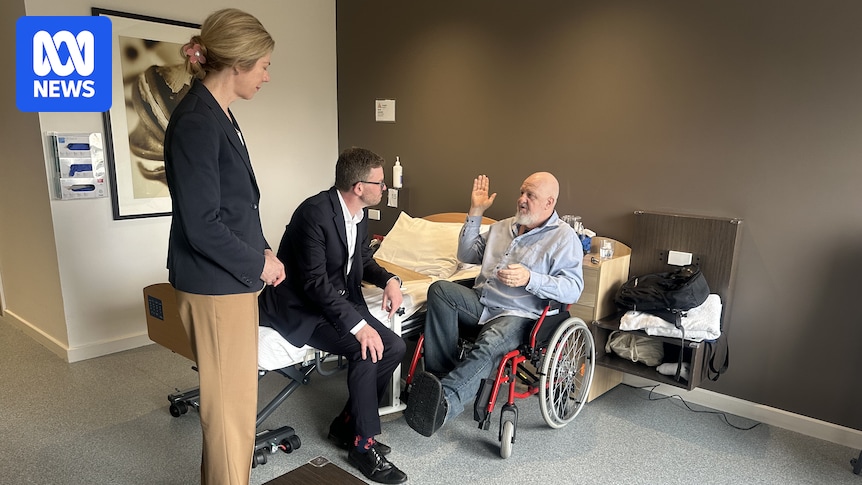South Australia has had its worst ambulance ramping on record as the government says the number of flu cases are at its peak.
In July, patients have spent 5,866 hours ramped in ambulances outside public hospitals, more than the previous highest record of 5,539 hours in July last year.
The ramping figures are released alongside state government data that shows there have been 18,293 flu cases so far this year compared to 12,992 last year.
Early July marked the most weekly flu cases in six years with 2,020 cases and 208 hospitalisations in the state.
Health Minister Chris Picton said the worsening ramping was exacerbated by the flu and the number of aged care patients waiting for discharge to a facility.
“We saw a big influx of flu patients the past month … that led to incredible pressure on our hospital system, not only in terms of the patients who are presenting but also in terms of staff illnesses,” he said.
“Flu’s been the highest it’s been at anytime this decade and that’s putting pressure at the same time we’ve got this federal aged care pressures at our hospitals.”
July recorded the most ramping hours in South Australia. (ABC News: Che Chorley)
The health minister says there are 280 patients in Adelaide hospitals waiting for a federal aged care bed.
“It’s basically the size of an entire Modbury Hospital taken out of the system with people who don’t need to be in hospital anymore,” he said.
Doubling hotel health beds
Mr Picton said one of ways to move patients out of hospitals and combat ramping was their hotel health service at the Pullman Hotel in the Adelaide CBD.
“We’re doing this because our hospitals are full,” Mr Picton said.
“We’re doing so because there are so many patients stuck in our hospital system waiting for a bed … they need to be in a federal aged care bed but we can’t get them into it.”
Patients like David Jackson (right) are receiving care at the Pullman Hotel before going home. (ABC News: Brant Cumming)
The government said more than 200 hospital patients have been cared for at the hotel — and the equivalent of 4,000 hospital bed days have been freed up — since the service started in February.
Under the Transition Care Service, health professionals in the hotel provide care to patients, who need rehabilitation or are waiting for an aged care bed, before they are ready to go home or to a long-term facility.
David Jackson, who recently had ankle surgery, said he felt safe, cared for and “mentally at ease” while recovering at the Pullman Hotel.
“I could be there [in hospital] for six weeks, six weeks in a bed that could be for someone that has [a] medical condition that needs more attention to,” he said.
Mr Picton says its “successful” hotel health service will double its capacity from 24 to 48 beds.
Peter Subramaniam says SA hospitals are under extreme pressure. (ABC News: Brant Cumming)
But the Australian Medical Association SA president, Associate Professor Peter Subramaniam, said the hotel health service was not a sustainable solution to the healthcare system.
“Hotels are not hospitals,” Dr Subramaniam said.
“The AMA welcomes any steps that reduces the pressure on our hospitals but let’s be clear this is not a solution, this is a workaround.”
He said SA’s record ramping figures in July was “a symptom of a system completely under stress and, as a consequence of that, a workforce under stress”.
He called for a “whole-of-system investment” to boost capacity in hospitals and rehabilitation centres, as well as prevent staff burnout.
“Increasing investment in our community services including our very important GPs would reduce the need for patients to return to acute care hospitals,” he said.
“That would help with ramping, that would help with elective surgery numbers, and importantly that would help with our workforce resilience.”
The opposition says Labor has not fulfilled its promise to fix ramping. (ABC News: Brant Cumming)
Opposition Health spokesperson Ashton Hurn welcomed the hotel health service but called on the government to make free flu vaccines and more out-of-hours GP services available.
“These two things alone would go some way to minimise the impact of ramping and the congestion in our health system,” she said.
“This aged care issue has been an issue for a long time — yes it continues to escalate — but the government has doubled the crisis they were elected to fix.”

